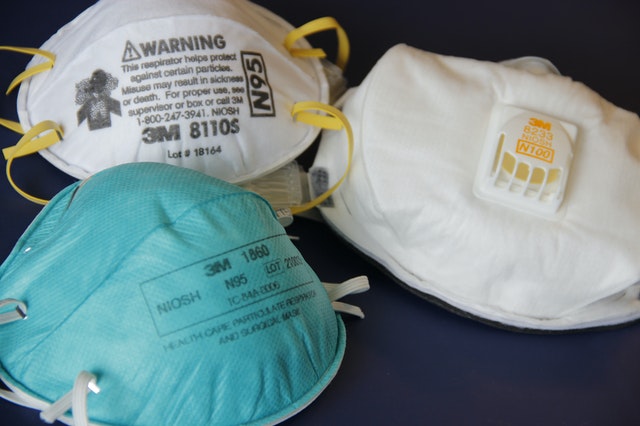Ever since the outbreak of the pandemic COVID-19, researchers around the world are putting the best of their efforts in understanding the nature and behavior of the virus and learning about the disease to work on its cure. While the spread of COVID-19 disease is yet to show its signs of abating, there are certain measures that we can always follow such as sanitizing hands, regular hand-washing, and wearing masks to slow down the spread rate as many sources including authoritative organizations confirm the primary reason of spread of the disease is via airborne particulates that an infected person may release through respiratory droplets when sneezing, coughing, and even talking.
While the market certainly faces a keen shortage of personal protective equipment masks and essential supplies, it’s demand among the general public has also folded ever since the pandemic was declared on a global scale back in March 2020. Among the options available, it often gets difficult to choose which type can work as the best face mask as per your needs and preferences while ensuring satisfactory protection against the disease spread.
The Different Types of Masks so Available
Disposable surgical masks and N-95 respirators are considered graded medical masks, the common cloth-based masks made from a normal piece of clothing are not considered medical-grade, however, they are being preferred as a great alternative to face masks as they offer reusability, are cheap in terms of price and are easy to clean and sanitize as well.
Disposable surgical masks
As the name suggests, Disposable surgical masks are limited duration usage medical masks composed of paperlike fabric material used in layers. These masks are loose fitted, comfortable to wear, and are capable of stopping upto 80% of the small particles from entering effectively. These face masks are approved by FDA for use and are effective in filtering sub-micron and bacterial contamination and qualify ASTMF-2100-19 standards.
N-95 masks
These masks are respirators that ensure an optimum 95% efficiency in blocking small-sized particulates, including viruses and bacterias of upto 0.3 microns. N-95 masks come with a tight-fit, are somewhat expensive, and, just like the surgical ones, are meant to be disposed of. These masks are more referred to as filtering facepiece respirators as compared to common masks and are also approved and tested by NIOSH, making it a recommended mask to be used along with side PPE’s for medical and healthcare professionals working on the front lines in this battle against COVID-pandemic.
Cloth masks
Cloth masks are made of general cloth fabric that’s commonly available in our households. Homemade cloth masks are also becoming popular due to their low cost and reusability benefits and are a viable solution as a face mask for community use. Depending on the thread count and material of the fabric, three to four layers cloth masks can be as much as upto 90% efficient in protecting against airborne microorganisms while also limiting the spread via respiratory droplets. Relatively dense cloth material would be preferable to ensure a sufficient 50-70% protection when used in layers.
One of the biggest reasons to promote this is since the virus incubation period remains uncertain till symptoms show up, and one may infect many others after coming in contact, and wearing a face mask in such cases can slow the virus spread. Researchers have further also revealed that fabric with a combination of cotton flannel has shown 90% efficiency in blocking small particles and can be used as a form of reliable protective face cover, especially for community use.
N-95 Respirators versus Homemade Cloth Masks
The approval of testing a success from various trusted organizations does give the N-95 respirators a leading edge against homemade cloth masks when quality and assurance is concerned and is considered a recommended facemask for healthcare settings and a must-wear part of personal protective equipment. N-95 masks can also be reused under certain circumstances if adequately sanitized and cleaned.
Homemade face masks, on the other hand, have certainly not been approved by any organization or authority. Still, several types of research do support its claim of its importance in slowing virus spread at the community level by limiting aerosol particles and respiratory droplets. Those with a multi-layer can also be equally effective in blocking most of the small particles. However, thicker layering can also cause uneasiness and cause trouble breathing.
Still considering the emergency shortage of medical supplies and demanded PPEs for healthcare professionals, it is best suggested for the public to go for a well built homemade cloth mask and instead reserve the graded medical covers like the N-95 dedicated for the healthcare settings, especially at this time of shortage. Organizations and authorities such as CDC and WHO are also encouraging the use of cloth masks and also recommend doing so in the community while going out to prevent disease spread.
However, none of the authoritative figures ensure 100% protection against the disease spread as the nature of the virus is still unknown. While wearing masks can pull you on a safer side, its still best suggested to stick to the other norms and drills of social distancing, regular hand sanitizing, and minimizing the ‘leave home’ scenario only when essentially needed.



